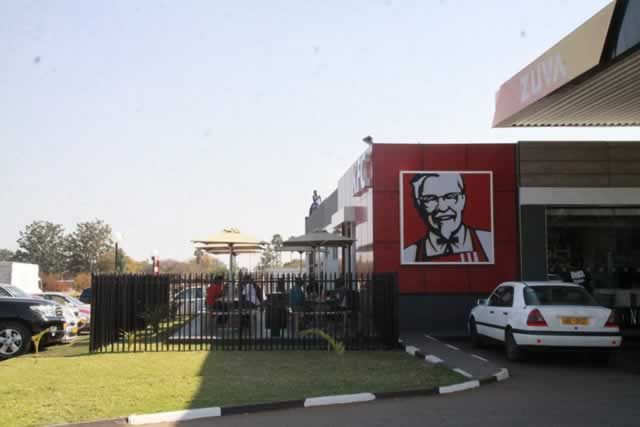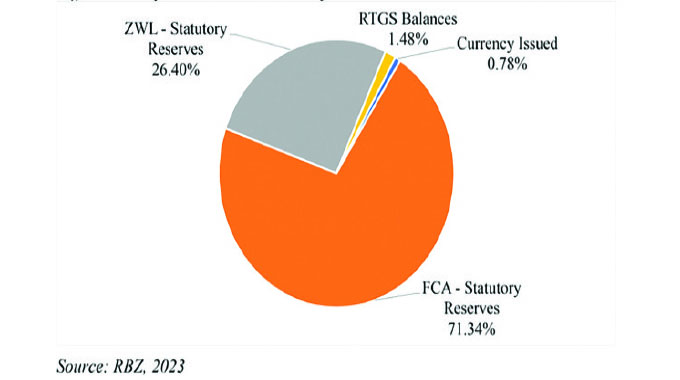Shake-up looms in fast food sector

Business Editor
The local fast food business is set to be shaken up in a big way following the return of American fast food giant Kentucky Fried Chicken and ill prepared competitors will possibly suffer.
This has been the general sentiment by most pundits as KFC reopened its first outlet on July 20, after nearly a seven-year hiatus due to the heightened economic crisis.
Not that it was not expected as KFC had expressed its plans to open outlets as part of efforts to spread its footprint in the sub-Saharan region as early as 2011.
Rather, it is the timing of its return when disposable incomes are squeezed that has left industry players astounded.
It is against this background that the purpose of this article is to evaluate the possible net effects to key stakeholders of KFC’s return.
KFC’s return though not similar may still partially resemble the entrance by Walmart into the South African retail space. Walmart, the world’s largest multinational retailer entered the South African front through a 51 percent acquisition to discount retailer Massmart. While the move was regarded as exciting in the Mergers & Acquisition universe, it was welcomed with mixed feelings by various stakeholders in Africa’s second largest economy.
Retailers, trade unions and policymakers were very much sceptical of the move as Walmart through its dominance in the global retail supply chain could possibly lead to detrimental effects. The greatest fear was that of job losses within the sector due to intense competition.
Further to this, there was fear that imports would increase leading to a decline in domestic business since Walmart would resort to its key suppliers outside of South Africa. Nonetheless, a win-win contract was resolved between unions, the government and retail industry.
Undoubtedly, the ultimate winners for this KFC move are consumers as this makes the fast food space to be more competitive than before. There has been a positive but slow shift in quality and pricing since the adoption of multi-currency system in the fast food arena.
Initially, Innscor through its brands Chicken Inn, Creamy Inn, Pizza Inn, Nandos among others dominated in this space riding on its solid capital base and brand name. This saw them milking above normal profits through premium pricing in a less competitive market as other players had no capital to retool post the hyper-inflation era.
However, the emergence of major rival Chicken Slice and other indigenous players has seen competition escalating ultimately bringing down prices while quality has been slowly improving to the benefit of consumers. Price competition re-emerged as well as promotional offers and discounts.
With the coming on board of KFC, consumers stand to benefit the more in the medium term as more players enter the market thereby levelling the playing field. With rumours of a possible entry by another American-based fast food chain Burger King Worldwide Incorporated (Burger King) consumers
may constantly benefit as the market opens up to international players.
Fast food players will most probably not sing the same song as that by consumers as the return will further dent their profitability. This is because of 3 intertwined factors.
Firstly, the decline in consumer disposable incomes due to the general contraction of the national cake has adversely altered consumer preferences towards basics ahead of luxury goods.
Thus sales volumes and customer counts have gradually been falling on a like-for-like basis if one is to exclude the effects of refurbishments and branch extensions.
Secondly, competition has been elevating over the years with the mushrooming of fast food outlets across the central business district and even in outskirts.
An additional factor is the growing preference among the public of traditional foods that are regarded healthy. These factors have seen players fighting for survival through price reductions and quality improvements ultimately trimming profit margins.
To make matters worse, the fast food and retail space are generally low margin businesses hence the overall effect will be low profitability. Innscor in its chairman statement for the December 2013 financial results affirmed to the fact that profitability for local fast foods was negatively affected by lower margins and increased overhead costs.
In light of rising competition and KFC targeting to open 10 outlets in the short term and 15 in the medium term, the road ahead may be bumpy adversely affecting revenues and earnings.
Nonetheless, the expansion drive by KFC will not be attained overnight which could act as a breather for industry players. In addition, the new player is expected to take the first year of operation as a platform for understanding the dynamics of the local industry.
Such an assessment will be critical as KFC will now be operating in a different landscape as the Zim dollar days are now history. Thus industry players such as Innscor, Chicken Slice, AFC and other players may take this opportunity devise measures which will possibly mitigate the downside effects of a fully functional KFC.
Furthermore, local players may need to take advantage of the minimal footprint if ever they are to succeed in attracting the dollar from consumers.
The domestic poultry industry may on the other hand be another winner following the agreement between the Government and KFC of resorting to local supplies. A row between KFC and poultry players subsequently delaying the re-opening of the former was on chicken imports since local poultry players were failing to meet demand.
KFC originally intended to meet its raw material requirements through imports as franchise owner for Zimbabwe operations Kevin is rumoured to have links with South Africa’s third largest chicken supplier Country Bird Holdings. Nonetheless, an agreement was reached where Irvines is reported to have won the contract to supply KFC.
Though it may be too early to predict the KFC effect on the fast food business, competition will most likely intensify. The industry appeal will mostly likely be reduced as profitability is most likely set to take a dip as disposable incomes will remain squeezed, availability of low cost substitutes and a gradual shift in buying power for consumers as competition escalates.
KFC management may also need to enter this space with a long term perspective as it will obviously not be a stroll in the park since Innscor boasts of wide distribution network, wealth of experience and strong financial muscle. Consumers will most likely have the last laugh.








Comments